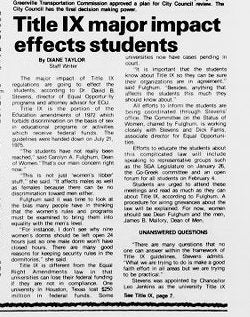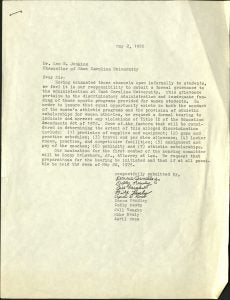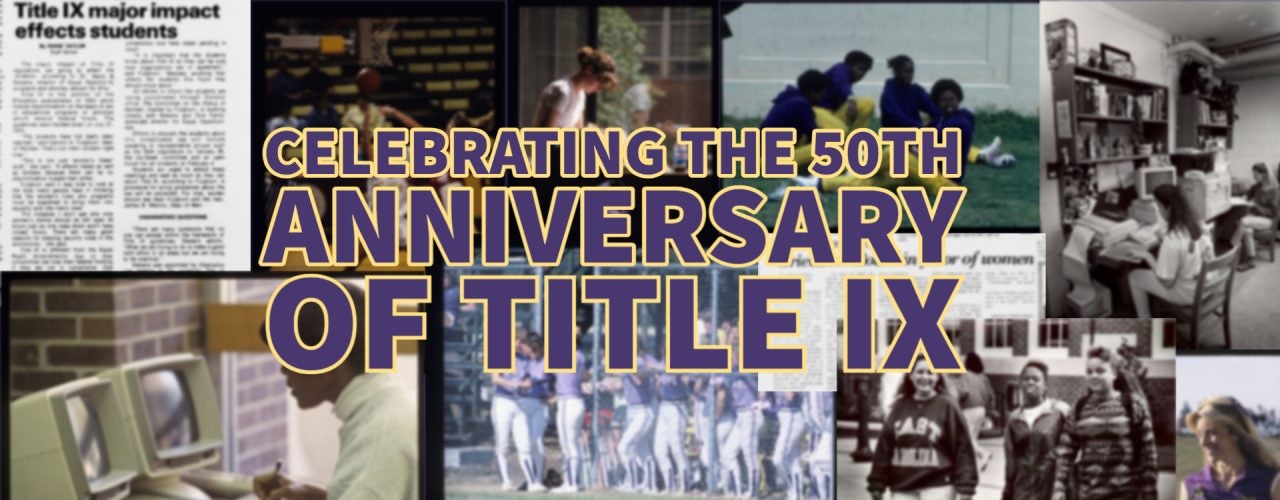Celebrating the 50th Anniversary of Title IX
June 23 marks the 50th anniversary of the signing of Title IX legislation by President Richard Nixon. Part of the Education Amendments of 1972, Title IX prohibits any educational institution that receives federal funding from discriminating based on an individual’s sex. It fills a gap in the Civil Rights Act of 1964, which despite outlawing discrimination based on race, color, religion, sex, or national origin, failed to address discrimination based on an individual’s sex for those employed or enrolled at an educational institution.

Fountainhead, January 22, 1967. East Carolina University Campus Newspapers. UA50-05. University Archives, East Carolina University, Greenville, NC.
Nixon assigned the task of implementing the new legislation to the Department of Health, Education, and Welfare (HEW). Three years later in June 1975, HEW published its final regulations and enforcement guidelines for Title IX. Since then, the federal government has consistently published reports on how Title IX legislation should be enforced and interpreted by all.

Letter to Chancellor Leo Jenkins from Debra Newby, Donna Pendley, Jill Vaugh, Mike Healey, and April Ross. May 2, 1978. Records of the Office of Equity and Diversity. UA21-10. University Archives, East Carolina University, Greenville, NC.
While most of the early attention around Title IX related to gender equality in athletics, the first real change to ECU policies was related to tuition and financial aid. In the spring of 1974, ECU dropped a longstanding rule that required a married female student to claim the same residency as that of her husband. Prior to this policy change, married female students could be charged higher tuition prices simply for having married a male classmate that was from outside of North Carolina. Other changes included the awarding of athletic scholarships to female students, the changing of student life rules that were discriminatory against females, and even the cancellation of the ECU Men’s Soccer Team. A 1978 student grievance brought even more changes as outlined in a “Plan to Strengthen Women’s Athletics and Comply with Title IX Guidelines,” which was approved by Chancellor Thomas Brewer.
During the 2022 fall semester, in celebration of the anniversary, University Archives will display “A Fight for a Fair Playing Field”: The Early Years of Title IX at ECU, an exhibit that highlights East Carolina University’s response to Title IX legislation and the 1978 grievance on Joyner Library’s first floor. Also, Academic Library Services and the Gender Studies Program will co-sponsor programming that looks at the history of Title IX and its impacts. Information about these upcoming events will be shared on the library’s website.
